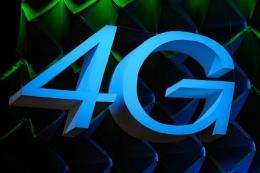Europe's first auction of "fourth generation" frequencies, which promise to revolutionise what mobile phones can do, raised more than 4.3 billion euros (5.3 billion dollars), authorities said Thursday.
Europe's first auction of "fourth generation" frequencies, which promise to revolutionise what mobile phones can do, raised more than 4.3 billion euros (5.3 billion dollars), authorities said Thursday.
The German auction, which began April 12 in the western city of Mainz, wrapped up after 224 rounds of bidding and with the coveted licences going to four sector giants, a Federal Network Agency spokesman said.
Deutsche Telekom, Vodafone and O2 claimed the top licences while E-Plus clinched lesser-value contracts, the spokesman told AFP.
The grand total from the auction -- 4.385 billion euros -- marked a windfall for German state coffers but fell far short of the 50 billion euros generated from the sale of third generation UMTS licenses in 2000.
Unlike UMTS, fourth generation Long Term Evolution (LTE) networks are expected to be up and running soon and experts are confident that the new technology will not disappoint.
A large part of what was up for grabs is the so-called "digital dividend," a chunk of frequencies left unwanted by television companies following their switch from analogue to digital broadcasting.
The new technology will mean users will be able to view high-definition videos on mobile phones, with their ability to transfer data at much higher speeds.
It may also pose competition to broadband and cable operators, since computers will be able to use the fourth-generation networks to access the Internet.
(c) 2010 AFP
























